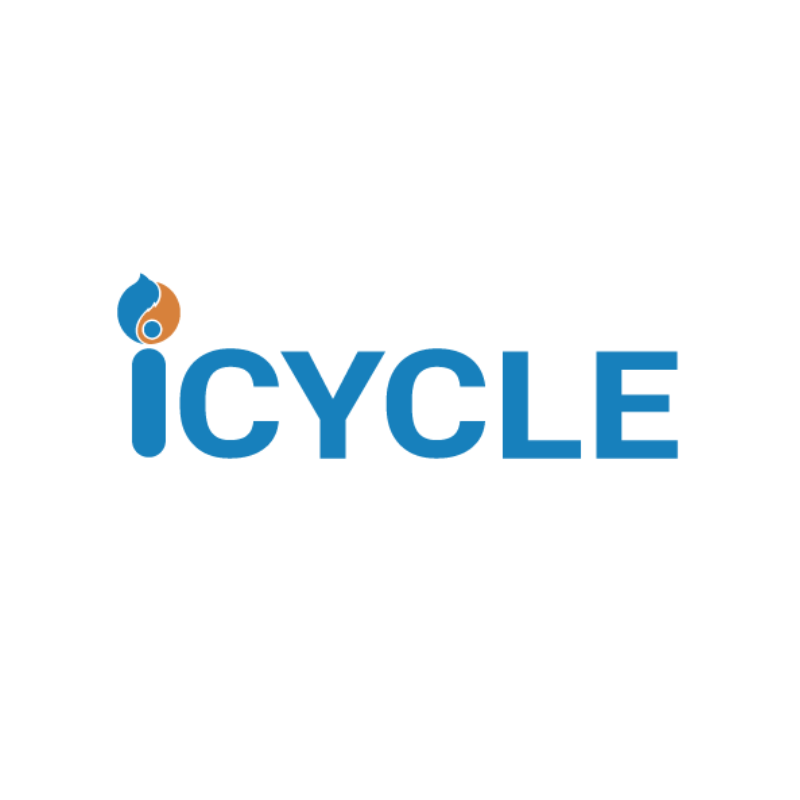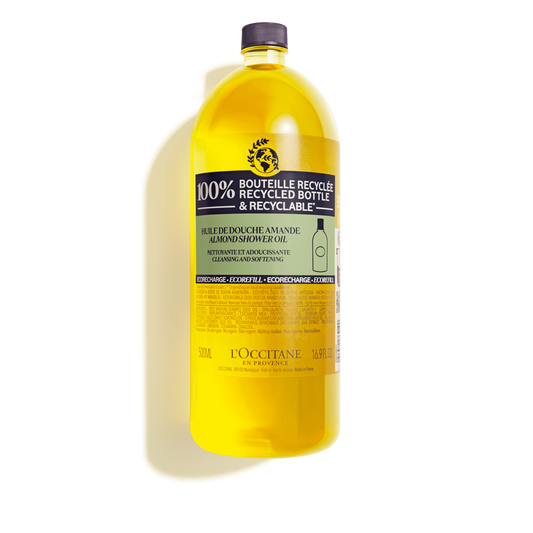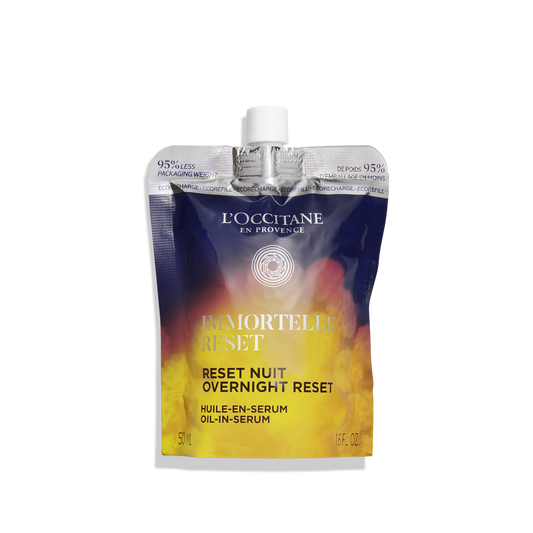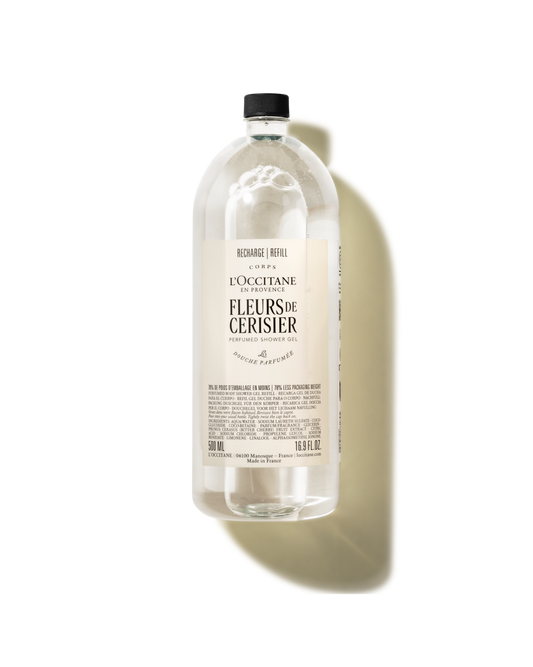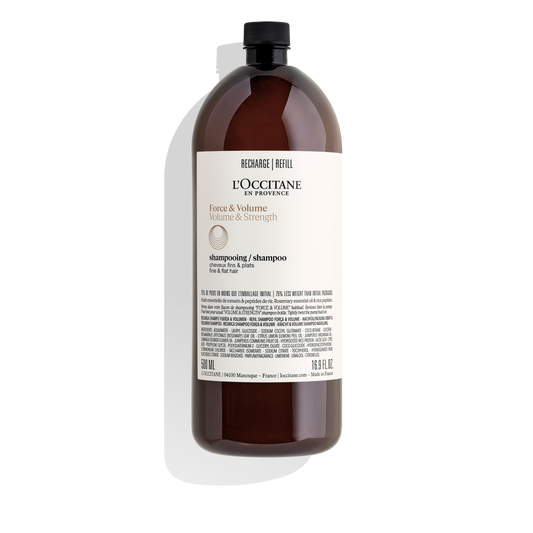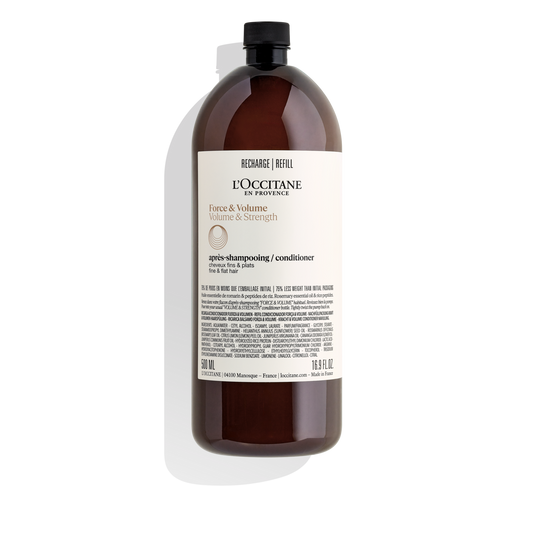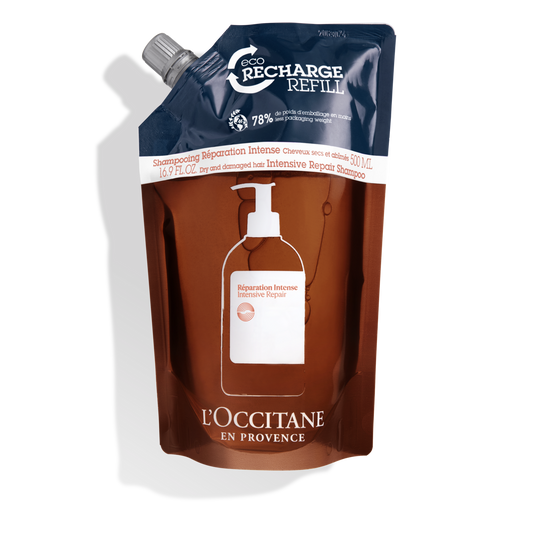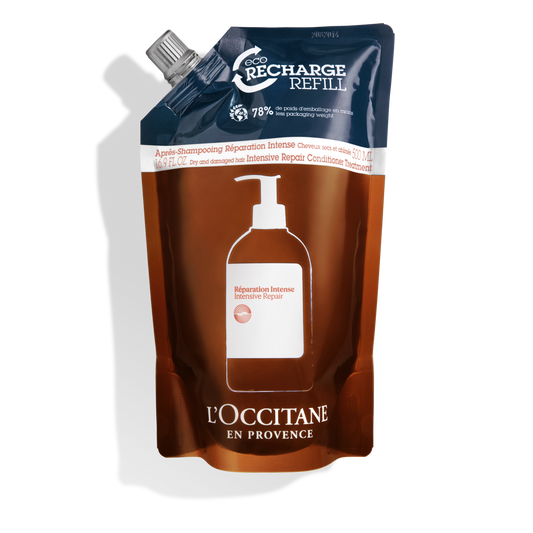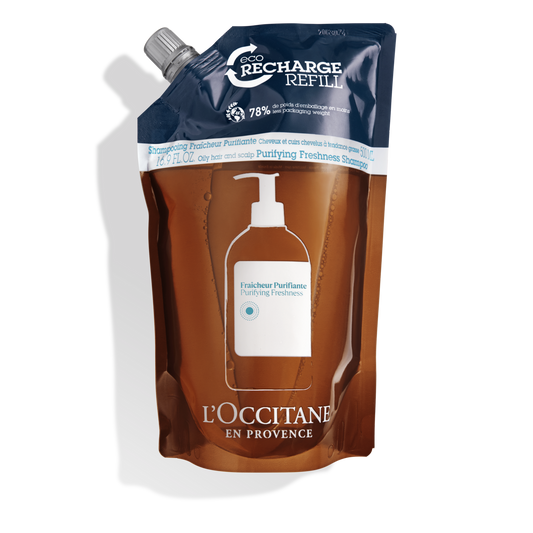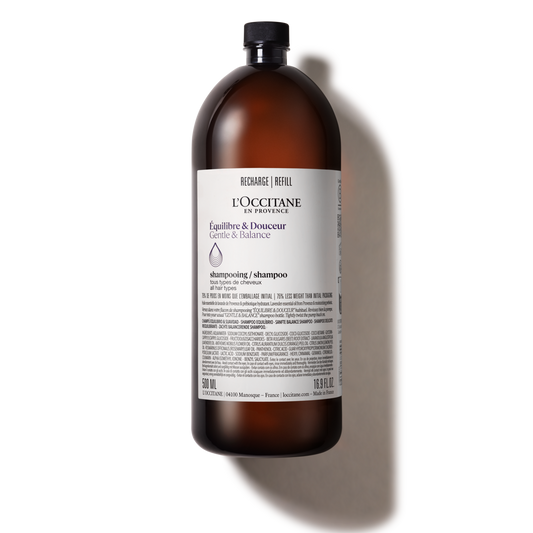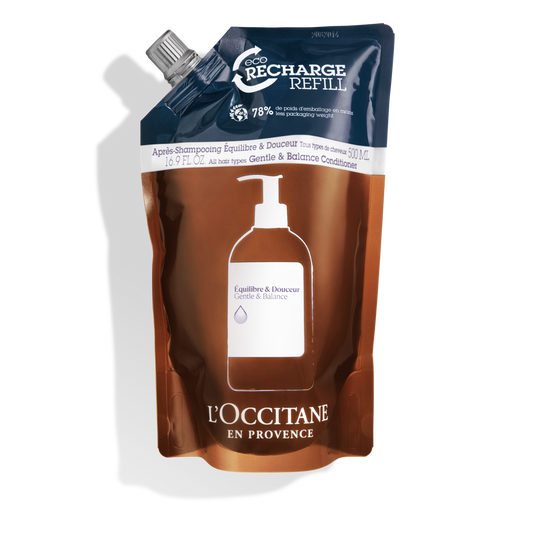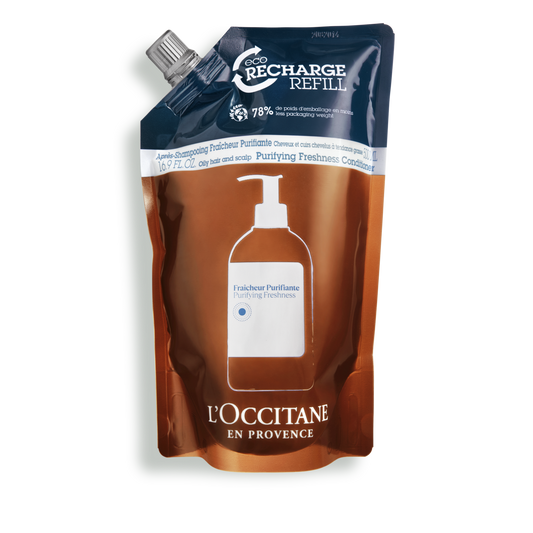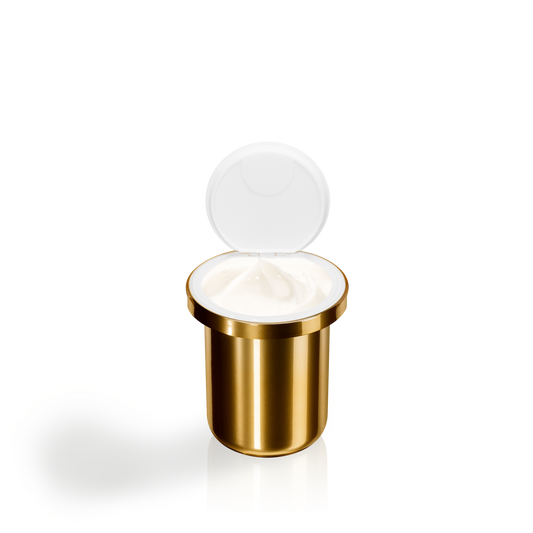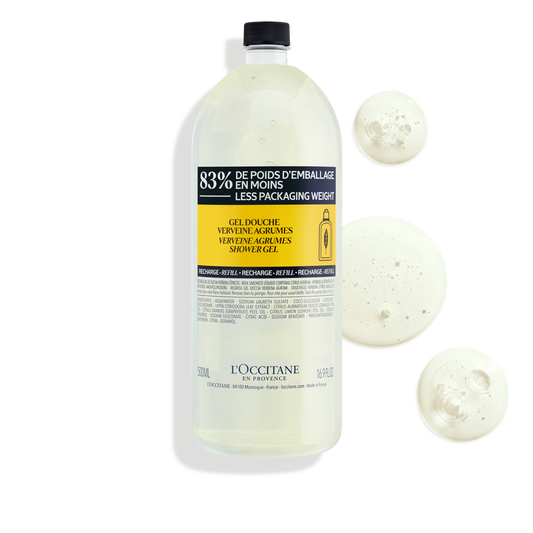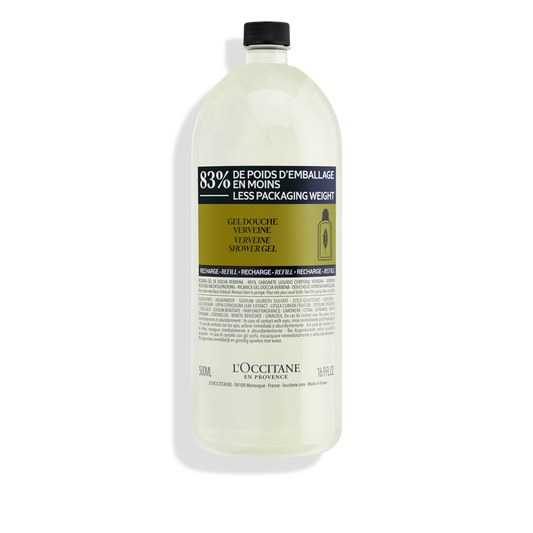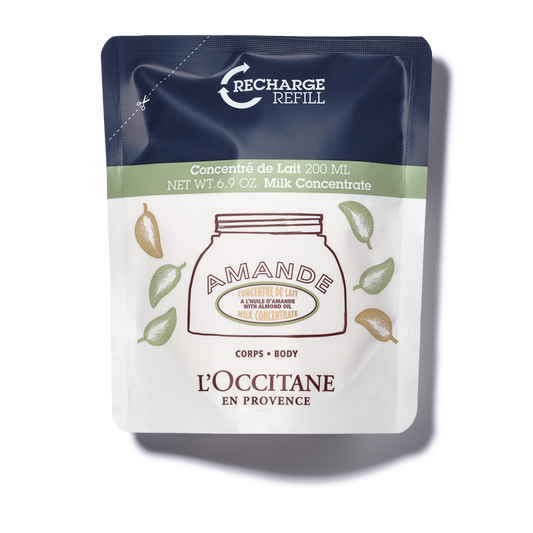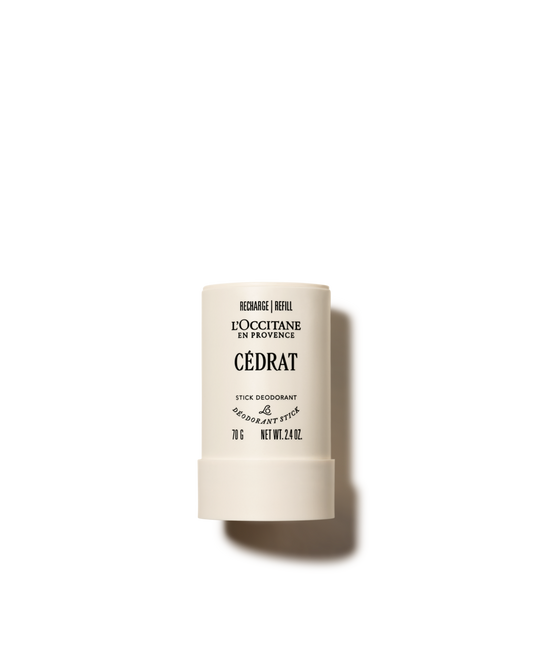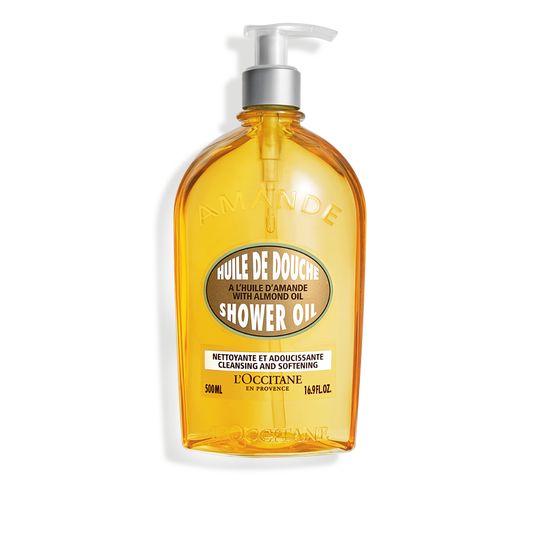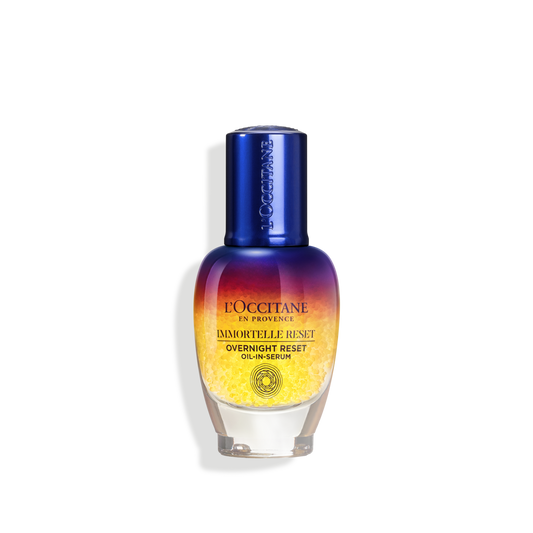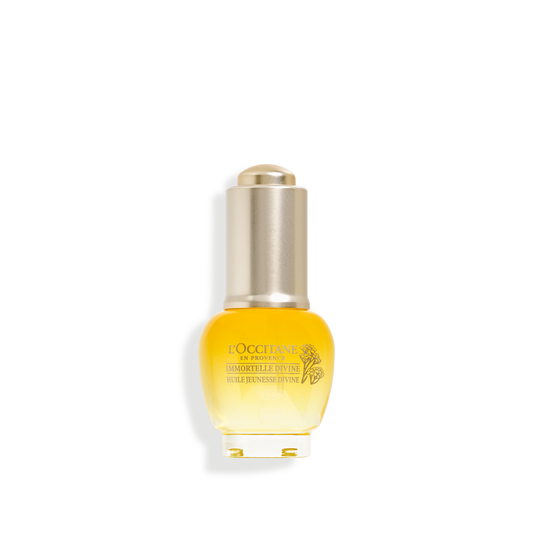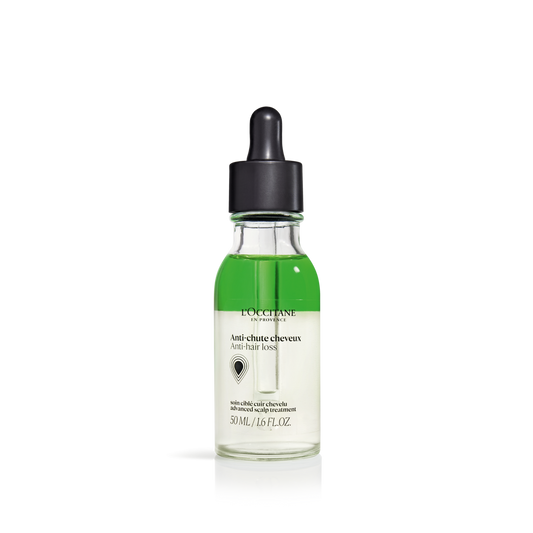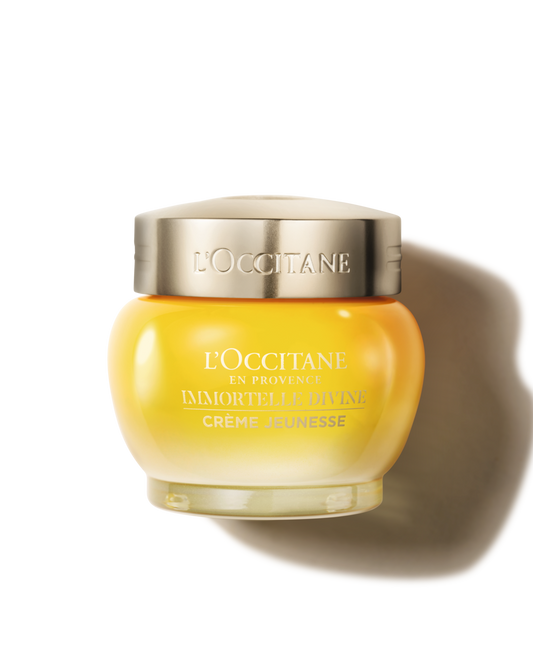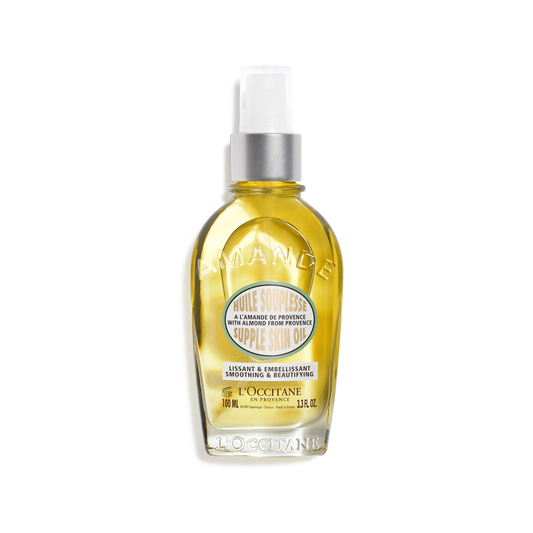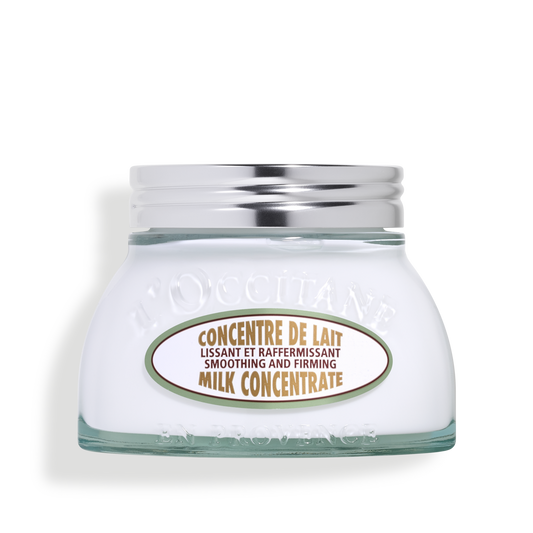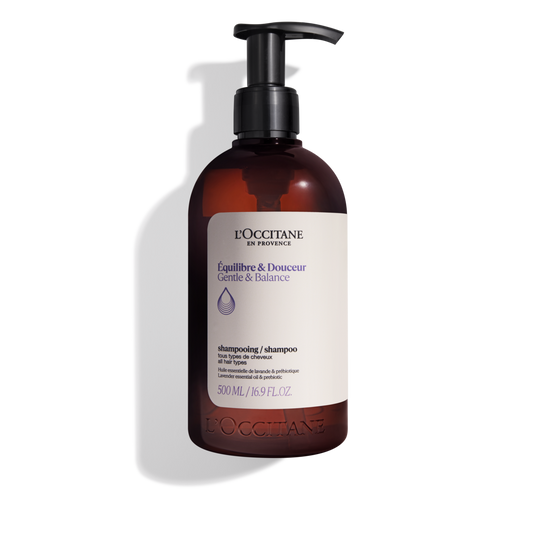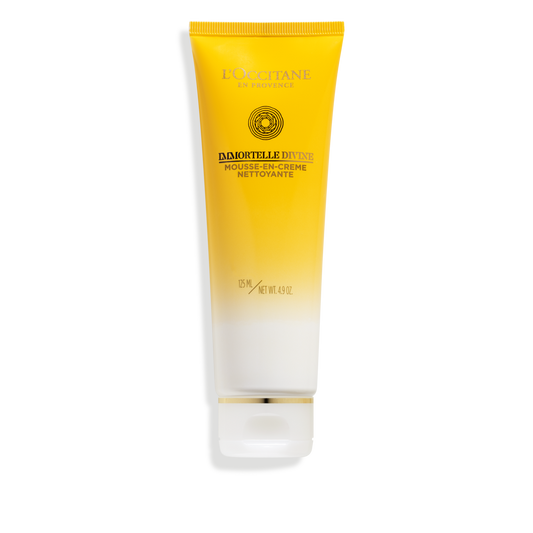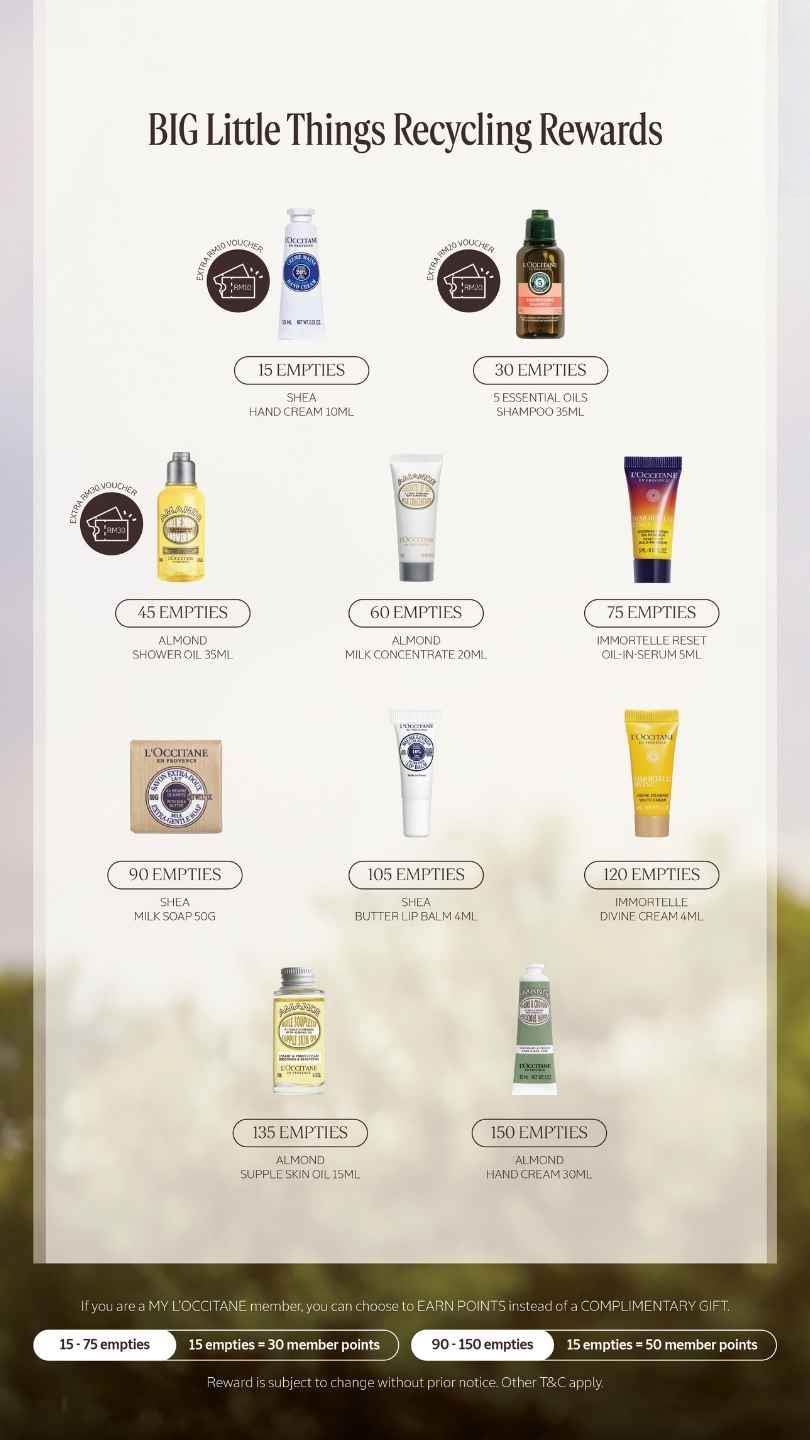BIG LITTLE THINGS
BIG LITTLE THINGS RECYCLING ANTHEM BY AISHA RETNO
ABOUT BIG LITTLE THINGS
BIG Little Things is L’OCCITANE Malaysia’s 1st ever recycling programme since 2019! Our goal is to mobilise more people to make big impact on the environment with the little things we do.
In partnership with local waste separation & recycling provider, i-CYCLE Malaysia, you can now recycle your empties at select L’OCCITANE boutiques all across Malaysia!
our refill collectioN
-
Capturing hearts every 8 seconds*Regular price Refill 500 ml RM180.00Regular price- %Refill 500 ml RM180.00
-
The n°1 most cherished facecare serum*Regular price Refill 50 ml RM390.00Regular price- %Refill 50 ml RM390.00
-
New lookRegular price Refill 500 ml RM160.00Regular price- %Refill 500 ml RM160.00
-
For thinning hairRegular price Refill 500 ml RM158.00Regular price- %Refill 500 ml RM158.00
-
New packagingRegular price Refill 500 ml RM175.00Regular price- %Refill 500 ml RM175.00
-
For dry & damaged hairRegular price Refill 500 ml RM158.00Regular price- %Refill 500 ml RM158.00
-
Regular price Refill 500 ml RM175.00Regular price- %Refill 500 ml RM175.00
-
Regular price Refill 500 ml RM158.00Regular price- %Refill 500 ml RM158.00
-
New packaging i for sensitive & oily scalpRegular price Refill 500 ml RM158.00Regular price- %Refill 500 ml RM158.00
-
Regular price Refill 500 ml RM175.00Regular price- %Refill 500 ml RM175.00
-
New packagingRegular price Refill 500 ml RM175.00Regular price- %Refill 500 ml RM175.00
-
Regular price Refill 50 ml RM840.00Regular price- %Refill 50 ml RM840.00
-
Regular price Refill 500 ml RM160.00Regular price- %Refill 500 ml RM160.00
-
Regular price Refill 500 ml RM160.00Regular price- %Refill 500 ml RM160.00
-
Long-lasting hydrationRegular price Refill 200 ml RM230.00Regular price- %Refill 200 ml RM230.00
-
New lookRegular price Refill 70 g RM90.00Regular price- %Refill 70 g RM90.00
Why Recycle?
-
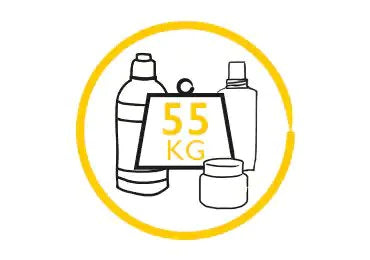
55 kgs
Of plastic is used in each household per year
-

500 years
Is how long it takes for plastic to fully decompose
-
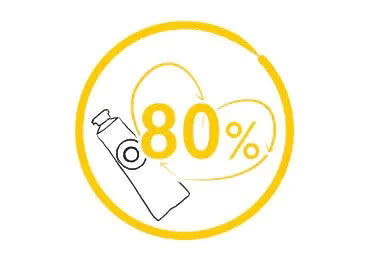
80%
Of Malaysia waste can be recyclable
most l'oved
-
Capturing hearts every 8 seconds*Regular price 500 ml RM210.00Regular price- %500 ml RM210.00
-
The n°1 most cherished facecare serum*Regular price 30 ml RM310.00Regular price- %30 ml RM310.00
-
Anti-ageingRegular price 15 ml RM290.00Regular price- %15 ml RM290.00
-
Purchase & win 1-year supplyRegular price 50 ml RM190.00Regular price- %50 ml RM190.00
-
The n°1 most cherished facecare choice*Regular price 50 ml RM580.00Regular price- %50 ml RM580.00
-
Back in stock | most lovedRegular price 100 ml RM240.00Regular price- %100 ml RM240.00
-
48 hrs of hydrationRegular price 200 ml RM260.00Regular price- %200 ml RM260.00
-
For sensitive & oily scalpRegular price 500 ml RM178.00Regular price- %500 ml RM178.00
-
Best sellerRegular price 125 ml RM178.00Regular price- %125 ml RM178.00
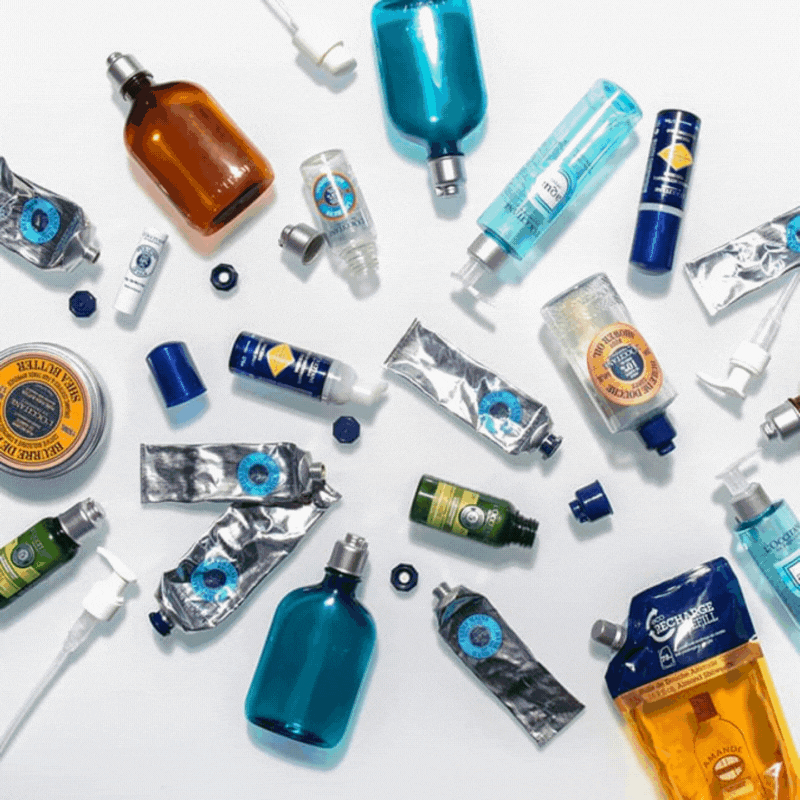
Recycle Empties to Create a Greener Future.
Let’s take part of an inspiring initiative to recycle empties to create a greener future for our beloved nation this Merdeka!
- Register your profile at the nearest participating L’OCCITANE outlet.
- Bring your clean and dried, full-size empties from L’OCCITANE or any beauty brand to be recycled. Our beauty advisors will check if the empties are eligible for recycling.
- Sign up and recycle your 15 full-sized beauty empty of any brand to receive a complimentary 10ml Shea Hand Cream, register here, now!

What Can I Recycle?
- Beauty, skincare, & hair care packaging in full size* of any brand (*Please refer to the full list of accepted packaging)
- Only completely clean & dried empties are accepted as a basic rule of recycling.
MY REWARD
BIG LITTLE THINGS FAQ
How do I recycle with L’OCCITANE?
Register your profile at the nearest participating L’OCCITANE outlet. Bring your empty beauty bottles of any beauty brand in dried & clean condition to any of the participating 27 L’OCCITANE stores.
Can I only recycle L’OCCITANE brand products?
We accept empties from other beauty brands in addition to L’OCCITANE empties. Our main aim is to reduce waste and plastic usage in the environment, hence we encourage everyone to bring back his or her beauty empties to recycle with us.
Can I recycle other empties such as water bottles or makeup packaging?
We do not accept mineral bottles or makeup packaging. The reward program is only applicable to products below:
a. Beauty packaging such as makeup remover bottles and pumps, fragrances bottles and pumps, and deodorant sticks.
b. Skin care packaging such as face care packaging, refill pouches, and dispensers and tubes for shower gels, facial cleansers and body lotions.
c. Hair care packaging such as pumps and caps from shampoo and conditioner bottles, hair care dispensers and containers, hair product trigger heads, and refill pouches.
Please refer to the full list of acceptable empties under Big Little Things Programme.
Do I need to empty and clean the product containers before bringing it to the store?
Yes. As a basic rule for recycling, all empties MUST be cleaned and dried to avoid contaminating other clean empties. There are no cleaning facilities or services provided in-stores.
How do I wash tube empties?
All tube empties may be cut open to ensure proper cleaning and drying of the empty before recycling.
What is the reward system for this recycling program?
For every full-sized empty beauty product, we will reward you with 1 “stamp”. After every 15 stamps, you are eligible to receive a travel size L’OCCITANE product or membership point for members. In-store beauty advisors have the right to check eligibility of each empty to count toward 1 ‘stamp’. Kindly note that the reward system is subject to change.
How do I track my points and redeem my reward?
After creating your Big Little Things profile and retuning your first empty, you can log in the day after to track your rewards on a digital recycling card (loccitanemy.com/big-little-things).
Once you have returned 15 empties and deemed eligible for gift redemption, the selected gift will be highlighted in green and you can proceed to collect the gift from any participating stores.
Can I redeem the rewards at other stores if the gift is out of stock?
Yes. You are allowed to redeem the rewards at any participating outlets under the Big Little Things recycling programme.
When is the latest I can redeem my rewards?
All rewards earned must be redeemed before 30 June of each year, after which all accumulated digital stamps will return to 0 count. As the Big Little Things rewards are an additional initiative aimed to encourage participants to recycle, all decisions made by L’OCCITANE Malaysia is final.
How long will the Big Little Things recycling programme run?
The Big Little Things recycling programme is an on-going initiative by L’OCCITANE Malaysia to encourage everyone to give recyclable material a second life. Hence, it is a long-term project that runs throughout the year.
What are the refill requirements?
What bottles can I use at the refill fountain?
It is recommended to use the L’OCCITANE forever bottle which you can purchase from our refill fountain stores or L'OCCITANE bottle of the same product (subject to inspection of suitability by our Beauty Advisors).
What is the difference between the forever bottles and plastic bottles from your brand?
Our forever bottle is made of aluminium, which is significantly stronger and can be used in a bathroom setting for a much longer time. Aluminium bottles are also recyclable again and again, making them an eco-friendly option. Our plastic bottles are made with recycled plastic and are recommended to be refilled for only up to 3 times before recycling. This is to ensure the strength, safety and quality of the bottle as well as of the product inside. By buying a forever bottle once, you are assured of the quality of the bottle in the long run and will use much less plastic over time.
Can I bring compatible bottles from another brand or a new unused compatible bottle (e.g. from a household store?)
To ensure the safety and quality of the product you are refilling, we are unable to accept bottles from any other brand due to the small possibility of residue in the bottle. Our refill fountains' nozzles are also specially calibrated to specifically fit our forever bottles as well as bottles from our brand.
Why do I need to change the plastic bottles and how often should I change it?
Our plastic bottles are made with recycled plastic and are recommended to be refilled for only up to 3 times before recycling. This is to ensure the strength, safety and quality of the bottle as well as of the product inside. The possibility of residue in the bottles could affect the safety and quality of the product you are refilling.
I have a bottle of another L'OCCITANE product that I would like to refill. Can I refill my bottle with other products since they are all stored in bottles from your brand, which you are able to sanitize?
To ensure the safety and quality of the product you are refilling, we are unable to accept bottles from another range due to the small possibility of residue in the bottle. Our sanitization chamber is only able to kill bacteria with UV light, it is unable to remove any residual product in the bottle.
If I am refilling the same product, why do I still need to clean the bottles?
The presence of any residual product in the bottle has the possibility to affect your refill's antiseptic ability, stability, quality and safety.
Can I fill two 250ml bottle when I purchase a 500ml refill at the fountain?
As the system is air-tight, the refill fountain is unable to stop dispensing the product once the refill amount has been set. If you would like to refill two 250ml bottles instead, you will have to purchase two 250ml refills.
Can I customize the volume of refill?
No. The volume of refill is already pre-set at 250ml or 500ml.
How do I know if the volume of refill is accurate?
The volume of refill is controlled by our refill fountain, which is regularly calibrated to ensure that the right amount of product is refilled.
How to clean my bottles?
What is the recommended way to clean my bottle?
Fill up your bottle halfway with warm water, seal the bottle by screwing on the pump and shake thoroughly. Pour out the water and repeat until no more bubbles are formed. Finally, rinse with cold water and leave the bottle upside down to air-dry.
What is the recommended way to clean bottle for products like conditioner or shower oil?
We recommended soaking the bottles of our conditioners and Almond Shower Oil for one day before washing. This allows the formula to dissolve for easier cleaning.
Why can't I refill bottles that are not completely dry?
The presence of any water in the bottle has the possibility to dilute the formula of the product you are reflling, which could possibly affect its antiseptic ability, stability, quality and safety.
How are my bottles sanitized?
The sanitation chamber uses an extremely strong pulsed UV light to effectively kill bacteria and instantly destroy surface microorganisms. It can kill over 99% of bacteria, viruses and microorganisms, including COVID-19, yeasts and mould.
Can you sanitize my plastic bottles?
The sanitation chamber uses an extremely strong pulsed UV light to effectively kill bacteria and surface microorganisms, and is made specially for our Aluminium forever bottles. This UV light affects the strength of plastic, making them fragile and unsuitable for use after sanitation.
Can I sanitize my bottles with alcohol or other disinfectants?
The presence of any alcohol or disinfectant residue in the bottle will affect the antiseptic ability, stability, quality and safety of the product you are refilling. The use of alcohols and chemical disinfectant to clean our aluminum bottle is also not recommended, as it might affect the structure of the bottle. We recommend cleaning the bottle with soap and water, then air-drying it thoroughly.
Why must I buy a new pump each time for certain products (such as Conditioners and Almond Shower Oil)?
Certain products have a thicker consistency, which means the pump is more difficult to clean thoroughly after use. This could affect the safety and quality of the product you are refilling, so we will require you to purchase a new pump each time you refill. We will send your pump for recycling on your behalf.
What is the recommended way to clean my pump?
Fill up your bottle halfway with warm water, seal the bottle by screwing on the pump and pump out the water. Repeat until the water that is pumped out is clear and not soapy.
How can I ensure that my pump is clean and dry?
We recommend separating the pump and the tube, thoroughly rinsing them and air-drying them individually.
Can we disinfect a used pump?
Our sanitation chamber is only able to sanitize the aluminium forever bottle and not the pump that comes with it. Thus, it is recommended that you clean and dry your pump thoroughly before bringing your bottle in for refill, to ensure the safety and quality of your product. For certain products with a thicker consistency that is difficult to clean thoroughly, we recommend buying a new pump for each refill.
Do we need to disinfect the new pump?
Our team of experts have thoroughly tested the use of brand new pumps with our refill fountain. You can rest assured that the safety and quality of the product is not affected.
What about the quality of refill product?
What is the shelf life of my refilled product?
Products from the refill fountain have a shelf life of 12 months after it has been dispensed into the refill bottles. A label will be printed with every refill to indicate the shelf life of the refilled product.
What is the shelf-life of the product while it is inside the fountain?
Our refill fountain is stored in an air-tight vacuum inside the machine, which ensures its safety and quality for 12 months. We also have a designated system that manage our inventory in the fountains to ensure the safety, quality and shelf-life of the product.
How is the quality and shelf life of the product in the refill fountain tracked and ensured?
We have a designated system that manages our inventory in the fountains to ensure the safety, quality and shelf-life of the product. There are also strict protocols in place to ensure that the products we offer at our refill fountain are well witihin its 12-month recommended shelf life.
L'OCCITANE COMMITMENT ON REDUCING WASTE
What is the difference between Eco-Refills and products from the refill fountain?
Eco-Refills offer our customers an easy way to refill their L'OCCITANE favorite, as and when they need it at home. After it has been refilled into our bottles, products from both the refill fountain and Eco-Refills have a shelf life of 12 months. Eco-Refill packs have a shelf life of 36 months when unopened.
Why is there only a limited selection of products offered with the refill fountain?
We are always offering our customers more ways to reduce waste with us. With your support, we will be able to offer more products at our refill fountain in the future. For now, you can shop our extensive Eco-Refill range, which uses up to 97% less product packaging than the original containers.
Why do you continue to produce plastic bottles and Eco-Refills?
We understand that not every customer is able to commit to using only the refill fountain, which is why we continue to offer our products in other eco-friendly packaging. Our products are currently already housed in recycled plastic, where possible. Our Eco-Refills take it one step further by using up to 97% less packaging, and uses only recycled plastic. Our brand commits to using 100% recycled plastic in our packaging by 2025. In the meantime, we also offer our customers an easy way to recycle their beauty empties with our Big Little Things recycling program.
Where can I drop off my empties?
Klang Valley
NU SENTRALLot CC.17A, Concourse Floor, NU SENTRAL KL Sentral,Jalan Tun Sambathan, 50470 Kuala Lumpur
One Utama
Lot 345, Ground Floor. Lebuh Bandar Utama47800 Petaling Jaya
Setia City Mall
Lot. UG-12, Upper Ground Floor, Setia City Mall,
Persiaran Setia Dagang, Setia Alam40170 Shah Alam
The Gardens
Lot F241, 1st Floor, The Gardens Mid Valley
Megamall, Lingkaran Syed Putra,59200 Kuala Lumpur
Sogo KL
FB-2 Ground Floor, 190 Jalan Tuanku Abdul Rahman50100 Kuala Lumpur
Suria KLCC
F113B, FIRST FLOOR, Jalan P Ramlee, Kuala Lumpur
City Centre, Kuala Lumpur50088 Kuala Lumpur
Pavilion
Lot No. 4.45, Level 4, Pavilion KL Shopping Mall,
Jalan Bukit Bintang,55100 Kuala Lumpur
IOI City Mall
G-42, Ground Floor IOI City Mall, IOI Resort City
Putrajaya, Malaysia
62502 Putrajaya
Bangsar Village
UGF-15, Upper Ground Floor, Bangsar Village II
Jalan Bangsar Baru
59200 Kuala Lumpur Sunway Pyramid G1.49, Grd Flr,
Sunway Pyramid
G1.49, Grd Flr, Sunway Pyramid No 3, Jalan PJS
11/15, Bandar Sunway, Petaling Jaya
46150 Petaling Jaya
EAST COAST MALL
GF-63B, East Coast Mall Jalan Putra Square 6,
Putra Square
25200 Kuantan
East Malaysia
Suria Sabah Shopping Mall
Suria Sabah, G-60, Ground Floor, Suria Sabah Shopping Mall, 88000, Sabah
The Spring Mall
G18, Grd Flr, The Spring Shopping Centre Lot 7196,
Section 64, Kuching Town Land District, Jalan Simpang Tiga, 93300 Sarawak
Johor
Southkey Mall
G044, Ground floor, Mid Valley SouthKey The Mall Kem Majidee, 81100 Johor Bahru, Johor
Melaka
Mahkota Parade
G10, Ground Floor, Mahkota Parade Shopping
Centre, Jalan Merdeka, Melaka 75000 Melaka
Penang
GURNEY PARAGON
Lot 2.13, Level 2 Gurney Paragon Mall Persiaran Gurney10250 Penang
Queensbay Mall
GF 60, Ground Floor, Queensbay Mall Persiaran
Bayan Indah, Sungei Nibong, Penang Island
14300 Penang Island
Gurney Plaza
Plaza Gurney 170-G-17/18 Persiaran Gurney10250 George Town
Big Little Things Acceptable Empties
List of Empties We Accept
Big Little Things is a long term recycling program. We accept recyclable beauty empties from ALL brands in the clean and dry condition. Our team will assist to check them for you upon collection.
These are the items, deemed as FULL SIZES according to L’OCCITANE Measurement, that allow you to be eligible for the redemption.
Face Care
All types of face moisturizers (cream, gel, balm & fluid): 50ml & above
All types of face cleanser: 125ml and above
All face scrub: 50ml & above
All types of face mask (except sheet mask): 50ml & above
All types of face toners (Emulsion, lotion, softener, tonic, acid toner, essence): 150ml & above
All types of make-up removers (cleansing oil, cleansing balm, micellar water): 100ml & above
All types of boosters, treatment, serum or face oil : 30ml & above
(We accept L’Occitane Divine Youth Oil 15ml)
All types of face sunscreens: 30ml & above
All types of face hydrating mists 50ml & above (except for the Makeup Fixing Spray)
All types of eye care products (cream, gel, balm): 15ml & above
All types of shaving & after shave products: 75ml & above
Body Care
All types of shower & bath products (including baby products): 250ml & above
All types of shower, shampoo & conditioner refill packs: 500ml & above
All types of body moisturizers (including baby products): 200ml & above
Body Oil: 100ml & above
Body Scrubs: 200ml & above
Deodorants & antiperspirants: 50ml & above
Colognes, Eau de Toilettes, Eau de Parfum & Parfum: 50ml & above
Hand Care
Hand & foot creams: 30ml & above
Hand wash: 300ml & above
Hand scrubs: 75ml & above
Hand sanitizers: 65ml & above
Hair Care
Hair shampoo & conditioner bottles: 250ml & above
Hair masks: 200ml & above
All types of hair leave-in treatments: 100ml & above
(Note: Hair dye and hair styling products are NOT accepted)
Others
Pillow mist: 100ml & above
Candle jars: 140g & above
Kindly note that we do not accept health and beauty supplement bottles and makeup products such as collagen bottles, eyeshadow palette, foundation, lip gloss, lip balm and etc. Hair styling products, toothpaste, mouth wash, feminine wash, nail polishes, nail polish removers, eye lotions, eye drops, ampoules, as well as any beauty product in an aerosol can.
